Posted on June 14, 2021 by Michael Brown -
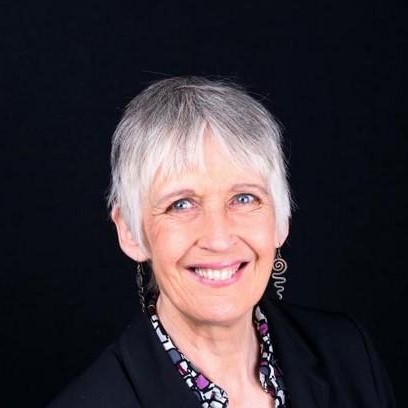
Liz is the Chief Executive Officer at the Farm Carbon Toolkit, a role she took on recently, having been a director there for the past five years. Liz has a wealth of experience of agriculture and food both in the UK and internationally. She has worked in the sector for over 30 years and brings a practical approach combined with scientific and sector knowledge to her roles.
Liz holds a BSc in Animal Science and is a Nuffield scholar, where her research involved exploring co-operation in the red meat sector and was a precursor to her joining EFFP. Here she worked on the development of supply chain collaboration in England. Other roles have been with English Food and Farming Partnerships and ADAS.
Liz is an Oxford Farming Conference Director and an advisor to Sell My Livestock. In her spare time Liz manages one of the largest pedigree flocks of Shropshire sheep in the UK and combines this with being a Council Member of the Breed Society.
Prior to joining FCT Liz was Associate Director of Farming and Land Use at the Soil Association. Liz brings not only an extensive expertise in the UK food and farming markets, but she also has a deep and practical understanding of the importance of improving soil health, reducing environmental impacts and greenhouse gas emissions from agriculture, and building resilience within the sector. She advocates that building economic resilience must occur alongside retaining product quality and animal welfare standards and building sustainable, regenerative practices on farm. Read ‘A day in the life of Liz Bowles‘
Location: South West
Posted on July 8, 2021 by Michael Brown -
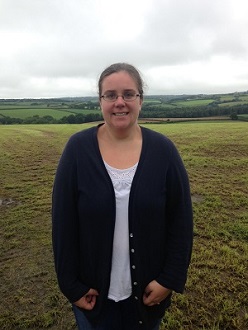
Becky joined FCT in January 2014. Prior to this, Becky worked on the SWARM Knowledge Hub, a project tasked with helping farmers and growers across the South West manage their resources sustainably. As part of the SWARM Hub project, Becky was part of the team that developed the Farm Crap App, a mobile phone app to help farmers calculate the nutritive value of livestock manures.
A passionate advocate for highlighting the economic benefits of sustainable farming, Becky currently divides her time between working for FCT and working for Duchy College Rural Business School as a technical specialist in resource management. In 2016 Becky was awarded a Nuffield Scholarship to study further how to communicate carbon reduction schemes to farmers, which has fed into her work at FCT and Duchy College. Read ‘A day in the life of Becky Wilson‘
Location: South West
Posted on July 8, 2021 by Michael Brown -
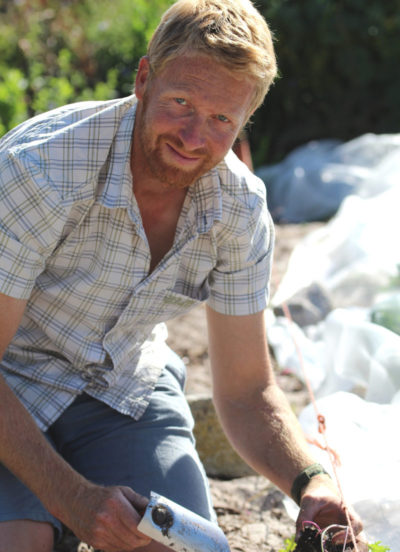
Jonathan runs Scilly Organics, growing fruit and veg that is sold locally on the Isles of Scilly. From 5 acres he runs a small box scheme, has a small roadside stall and supplies cafes and restaurants. Sustainable, resilient and low carbon food production is something he does on a daily basis! Jonathan also has a yurt on the farm that he lets out to visitors.
He wrote and co-developed what is now the Farm Carbon Calculator. Our online tool available to farmers and growers that allows them to accurately assess the carbon footprint of their farm businesses. He oversees strategic direction and development of the Calculator, which is currently going through a significant and exciting phase of development.
A founder member of Transition Scilly, Jonathan has been heavily involved with community initiatives to reduce dependence on fossil fuels, reduce individual and collective carbon footprints, and increase the resilience of the community. Enabling sustainabile living has been a part of his life for the past 20 years or more.
Jonathan is one of the original directors of Farm Carbon Toolkit.
Location: South West
Posted on December 6, 2022 by Michael Brown -
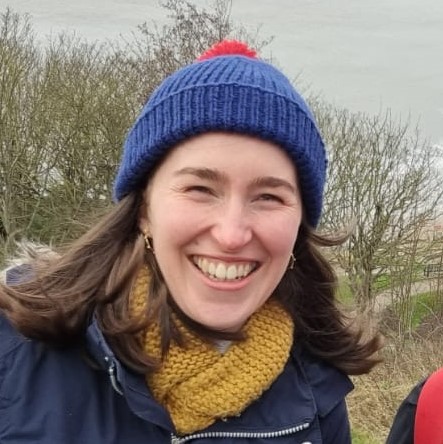
Lizzy oversees the updates to our farm carbon calculator. Lizzy previously worked analysing large data sets from biochemical analysis of crop plants and led on projects supporting research software development at the University of Sheffield. Having also worked in the charity sector helping constituents communicate climate change issues with their local and national decision-makers, Lizzy is interested in overcoming barriers to the adoption of more sustainable practices. Her training as a soil biologist has led to a passion for the need to protect and safeguard the potential of our agricultural soils.
Lizzy grew up on the border of Somerset and Devon in a rural farming community. She is now based in Sheffield where she recently completed her PhD researching the effects of mycorrhizal fungi on barley during drought. She has a masters degree in Plant and Microbial Biology (MRes) and a degree in Biology with a Modern Language (BSc Hons). In her spare time, Lizzy volunteers with Foodworks, a Sheffield-based charity who repurpose surplus food and also grow their own within the city using regenerative principles. Read ‘A day in the life of Lizzy Parker‘
Location: Sheffield
Posted on July 8, 2021 by Sam Smith -
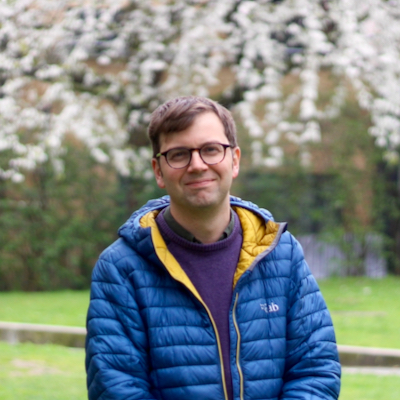
Sam was a Non-Executive Director between 2018-2024, and has been on the staff since August 2020. Sam was attracted to FCT because of its practical and positive approach – and the belief that farmer-to-farmer engagement is one of the best ways to support change in agriculture.
Sam previously worked with the sustainability non-profit Forum for the Future. His work there focused on supporting large organisations across the food and farming sector to grapple with the grand task of shifting our food and farming systems so that they support better livelihoods, healthier lifestyles and strengthened ecosystems. Sam is interested in how society can build greater resilience, while rapidly decarbonising and adapting to an increasingly challenging climate.
In 2012-16, Sam managed Sutton Community Farm, a community-owned horticultural farm and VegBox scheme on the outskirts of London, that creates a warm, welcoming environment for people to join in. Before this, Sam spent four years at the sustainability charity Bioregional, where he developed his interest in carbon and ecological footprinting. Part of his role there helped organisations to understand and act on their footprints.
In 2019, Sam was awarded a Nuffield Farming Scholarship which is focusing on the excitement and hope in the regenerative agriculture movement and whether it is offering a shared, transformative ambition for the food and farming sector. Read ‘A day in the life of Sam Smith‘
Location: Scotland
Posted on January 23, 2025 by Michael Brown -
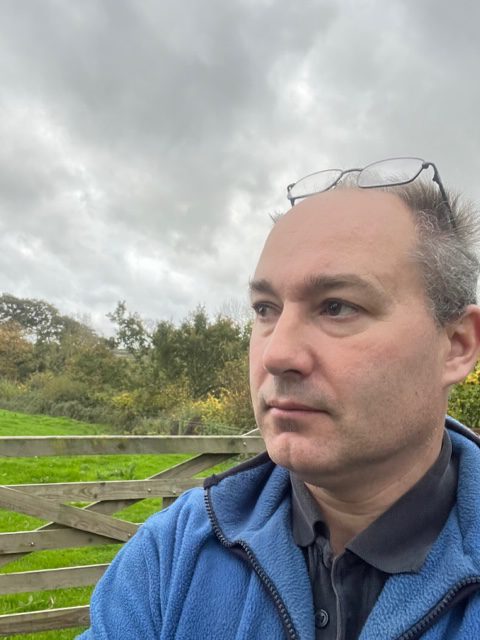
Tim is a project manager for the Farm Carbon Toolkit. With a B.Sc. (Hons) in Agriculture and a Post Graduate Diploma in Rural Business Management. Tim has an international farm management, farm advisory background and a national policy background, having led the regional agricultural policy areas in Agricultural Resource Management and Animal Health and Welfare. Tim has also led and managed a protected landscape, led environmental partnership delivery for a local authority and worked and led farm advisory work and large scale habitat creation for a county wildlife trust. Tim has also established renewable energy businesses and owns and runs his own farm, implementing regenerative agro-ecological techniques.
Location: South West
Posted on July 8, 2021 by Michael Brown -
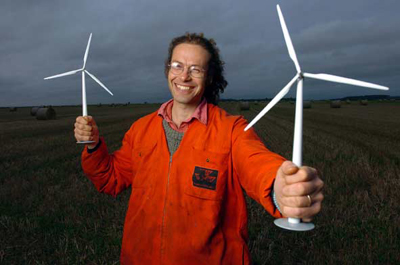
I obtained a BSc in Agriculture from Reading University in 1983 and have farmed on the Oxon/Wilts border near Faringdon ever since. I am a tenant of the National Trust on 750 acres at Colleymore farm and a part owner of 450 acres at Westmill farm. The farm business has a 110 cow dairy herd, arable and beef enterprises, several alternative farm enterprises and a HLS scheme.
I have been working on renewable energy generation and energy saving on the farm for over twenty years ranging from a 5MW Solar PV installation (commissioned July 2011) to extensive use of insulation in the farm buildings, experimenting with a legume understory in wheat to reduce use of nitrogen and N2O losses, a heat exchanger for the bulk tank etc etc.
I spent far too long (17 years!!) setting up Westmill wind farm, the largest wind farm in central southern England (5 x 1.3 MW turbines – www.westmill.coop); for this I was a finalist in Farmers Weekly Green Energy Farmer of the Year 2010.
I also helped set up community owned Westmill Solar Farm alongside the wind farm, for which I was a finalist in the Farmers Weekly Green Energy Farmer of the Year 2013 and Farmers Guardian Renewables Innovator of the Year 2013. I’m very clear about the importance and urgency of engaging, both within and beyond my work, with the threat of climate change and our responsibility to make change. FCT is my attempting to do that within my profession.You can read more about Westmill wind farm here.
Posted on July 3, 2024 by Michael Brown -
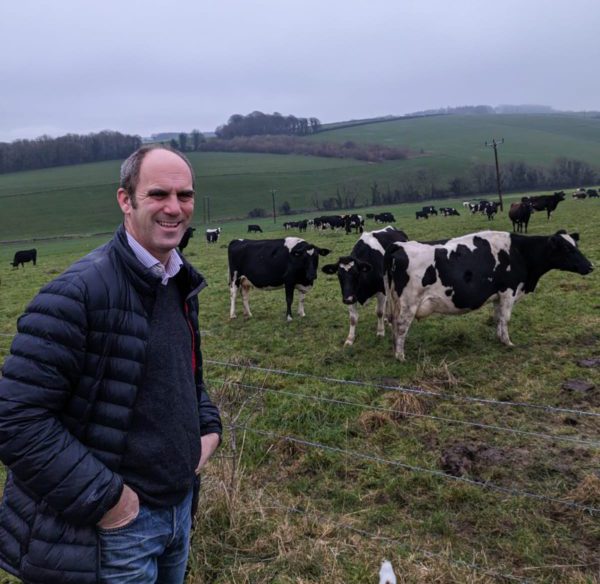
Andy is a non-executive Director at Farm Carbon Toolkit. He qualified as a vet in 1997, and after a short period in mixed practice, went to New Zealand to learn how to be a proper farm vet. Returning to the UK in 2003, he has worked in farm practice ever since. In 2007, he embarked on a part-time MBA journey, aiming to enhance his business acumen and develop a strategic mindset for the future. From 2009 to 2019, he not only owned a vet practice but also took on significant leadership roles. He became the Chair of XL Vets UK Ltd and a Non-Executive Director of a Veterinary training business. In these positions, he focused on delivering governance, fostering growth, and building strong teams, all within an industry undergoing rapid corporatization.
He has always struggled with the tension within veterinary medicine between farmers wanting magic bullets to ‘cure’ their animals and the need to challenge farmers to create environments where they don’t get ill. He has always been more interested in how to create systems that deliver animal health and welfare so that pharmaceutical remedies are not needed.
In 2019, he made a significant transition, selling his business and joining Mole Valley Farmers. This move allowed him to broaden his understanding of Agriculture from different perspectives, encompassing nutrition, agronomy, and retail, all while managing their vet practice. This shift also sparked a deeper interest in how we can address issues of climate change and sustainability.
In 2022, he completed a short course in sustainability leadership at CISL. Understanding how to draw down carbon and farm regeneratively allows him to act as a bridge between farming, professional services, agricultural businesses, and innovative companies.
Since 2022, his consulting activities have been split between working with vet practices to strategically face the future and farming business to engage in regenerative farming.
He works with organisations to support their senior leadership teams in thriving whilst valuing their people and the planet.
Currently, he has his own consultancy business focused on supporting Veterinary and Agricultural organisations in facing the future with optimism and creativity to deliver a sustainable future where our grandchildren can be proud of the work we have done to cool the planet and bring back biodiversity.
Posted on July 3, 2024 by Michael Brown -
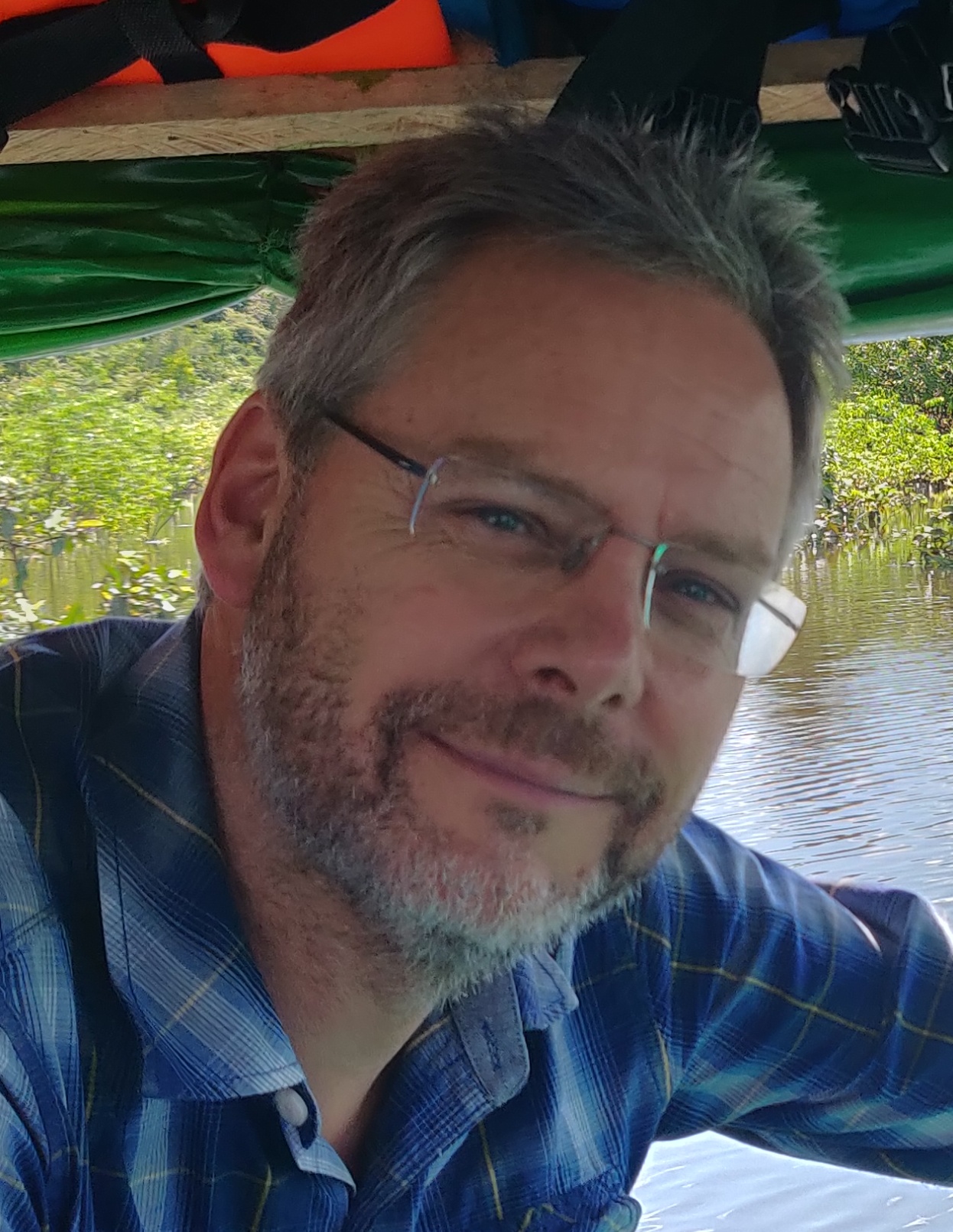
David is a non-executive Director at FCT. He is co-founder of CO2eco, a start-up with a mission to create solutions for long term investments in nature recovery. The company is currently focused on projects in Latin America, implementing funding streams for the large-scale restoration of rainforest. His role immerses him in the emerging markets for ecosystem services and carbon removal, and he has a particular interest in how data and accounting must develop to underpin these markets. David is a chartered accountant and spent much of his career in leadership roles in finance and operations covering sectors including spatial data, landscape engineering, management consultancy and government regulation. His masters’ degree in Leadership In Sustainability at CISL Cambridge in 2019-21 included a thesis on a UK market for soil carbon sequestration, which led to the creation of CO2eco. He lives in Oxford, which he considers the epicentre of the civilised world, with its farming conferences and university faculties dedicated to climate transition and nature recovery. Out of work, you will find him outside enjoying nature – on bikes, boats or on foot.
Posted on July 8, 2021 by Michael Brown -
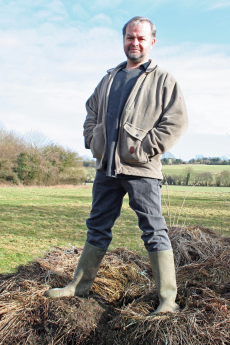
Andrew is an arable farmer in Hampshire with a strong conservation and sustainability mind-set. Beyond the farm he has been involved in many initiatives primarily focused on climate change and renewable energy.
In the early 1990s he initiated, with friends, the setting up of a local environmental charity, which, with Andrew as its chair for 15 years, grew to employ 25 people.
Andrew has worked in wind, solar, storage and anaerobic digestion, and was a member of Forum for the Future’s Steering Committee for their “Farm Power – Putting Agriculture on the Grid” project. He was a founder of a Community Interest Company seeking to set up a local community bank focused on low-carbon and social enterprise lending.
He was also part of a team that established a new retail business, initially based at his farm, and remained a director until it reached £1M turnover.
Thus, Andrew has experience beyond farming of board management, fundraising, business start-ups, and working for government agencies and NGOs. He has been a director of Farm Carbon Toolkit since 2014.
His farm has been a net exporter of electricity from solar PV for over a decade, and this has also enabled his personal and business car use to be virtually carbon-free by utilising the PV to charge an electric car.
Location: South East











Recent Comments